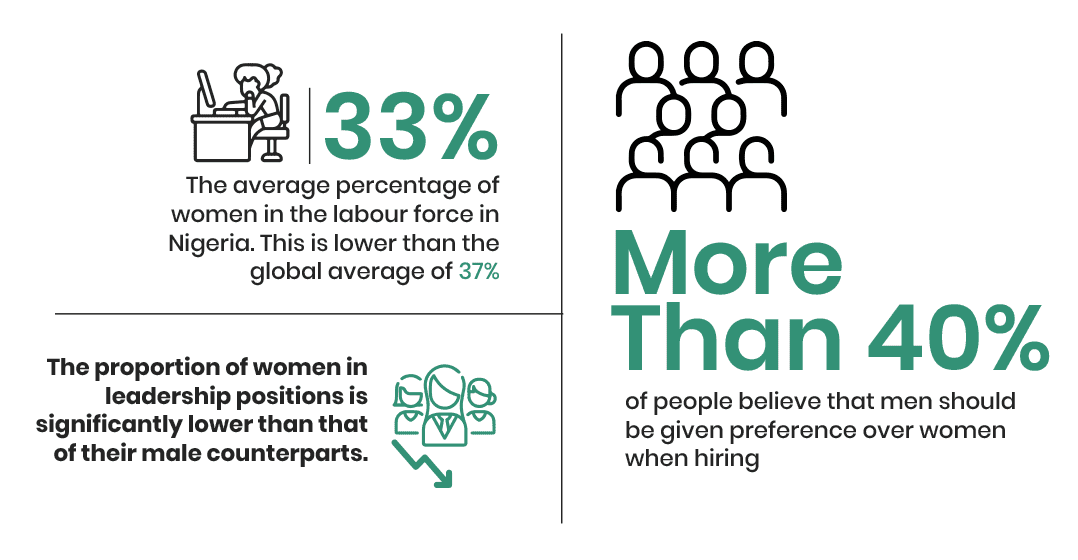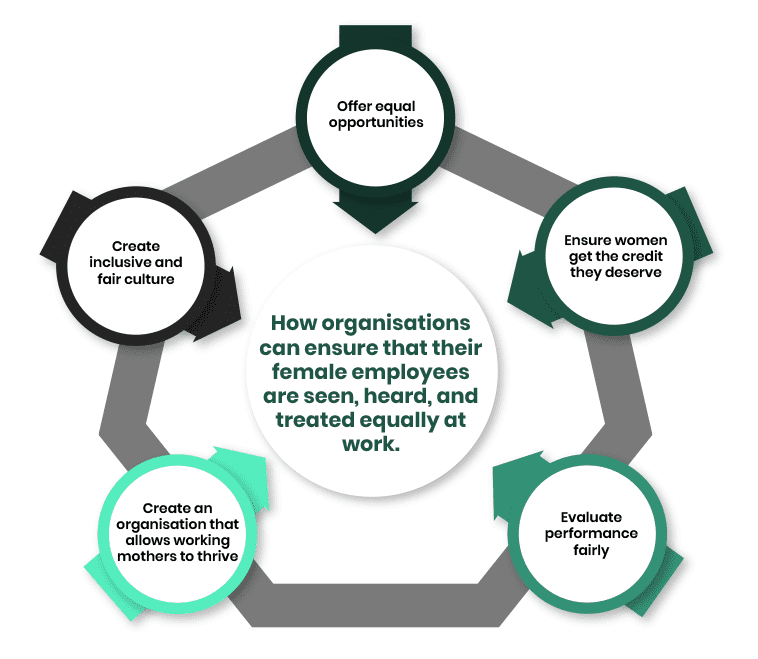Imagine a world where women are assured of fair and equal treatment and do not worry about being paid less than their male colleagues in the same position. A society where everyone has equal access to opportunities and resources. An organisation that values diversity, justice, and openness while avoiding prejudice, discrimination, and stereotyping. What a world that will be!
According to independent studies conducted by the International Finance Corporation (IFC) and Afrobarometer, there is a significant gender imbalance in society, and women continue to be disadvantaged compared to men.
The findings also highlighted the need for organisations to create policies that promote gender equality and equity in formal employment and eliminate the barriers that prevent women from obtaining high-quality jobs and attaining leadership positions.
Gender equity is more than just a nice-to-have; it is an essential concept that benefits everyone, not just women. When it comes to equity, every voice matters. Although it is often confused with equality, the two words are distinct. While “equality” implies that everyone or every group has the same resources or opportunities, this is not the case. The term “equity” acknowledges that everyone’s circumstances are unique and allocates resources needed to achieve an equal outcome. Gender equity does not imply that men and women become the same; instead, it means that they should have equal access to opportunities and resources that are not dependent on or limited by their gender.
However, research has shown that discrimination and prejudice against women still exist. We continue to see instances where women are mistreated and undervalued compared to their male counterparts in similar roles, despite their progress and advancements in the workplace. Additionally, they frequently must deal with superiors or coworkers who hold them to lower standards because they are female and are perceived as unable to manage the household and simultaneously serve in leadership positions.
It is now critical for every organisation to adopt policies that will provide equal opportunities to everyone so they can overcome challenges and feel confident bringing their whole selves to work. Organisations can accomplish this by integrating gender equity into their core values & culture and fostering an inclusive workplace that values fairness, empathy, and respect for all staff members.
A gender-balanced workplace offers all workers, regardless of gender, race, sex, or ethnicity, equal opportunities, pay parity, equitable participation, and comparable benefits. Organisations and individuals working to achieve gender equity in the workplace must reevaluate current practices and confront preconceived notions to create a culture that can effectively utilise the strengths of both genders. For this to be successful, participation from all levels is necessary. The first step would be to acknowledge the value of everyone in the organisation and their potential to influence all business lines. The next critical step is educating staff members on the importance of treating each other fairly, with goodwill and respect. Organisations that educate and empower both sexes will become more inclusive, productive, and innovative.
How organisations can ensure that their female employees are seen, heard, and treated equally at work.
- Create inclusive and fair culture: How employees are treated in the workplace significantly impacts their productivity. Everyone, regardless of their gender, should be allowed to thrive, and policies implemented should be inclusive and promote employee fairness and equality.
- Offer equal opportunities: Opportunities in the workplace should not be limited or restricted to a particular gender due to perceptions or biases. Every organisation must ensure that all individuals have equal access to resources and that those allocating them are conscious of their prejudices.
- Ensure women get the credit they deserve: Though we advocate for gender equity, trends have shown that women often receive less credit and recognition for their work. Organisations can help ensure women get the credit they deserve by enacting policies that allow recognition and cultivating a positive work environment that gives credit where credit is due.
- Evaluate performance fairly: Performance appraisals should be honest, fair, and objective, regardless of gender. Conducting unbiased reviews fosters a feeling of equity amongst employees, essential for engaging and motivating them. Giving employees a more positive, fair appraisal system will allow them to focus on their work without fear of repercussions.
- Create an organisation that allows working mothers to thrive: There is a widespread misconception that working mothers are less competent and committed to their careers. This has led to them being subjected to stricter requirements and having fewer opportunities thrown at them. Organisations can assist women by developing policies that cater to them and provide them equal opportunities as their colleagues.
In conclusion, embracing equity is a critical component of creating a workplace that is equitable, inclusive, and supportive of all employees. Let us embrace equity today.
Written by:
Oluwashola Achara
Learning Experience Designer


